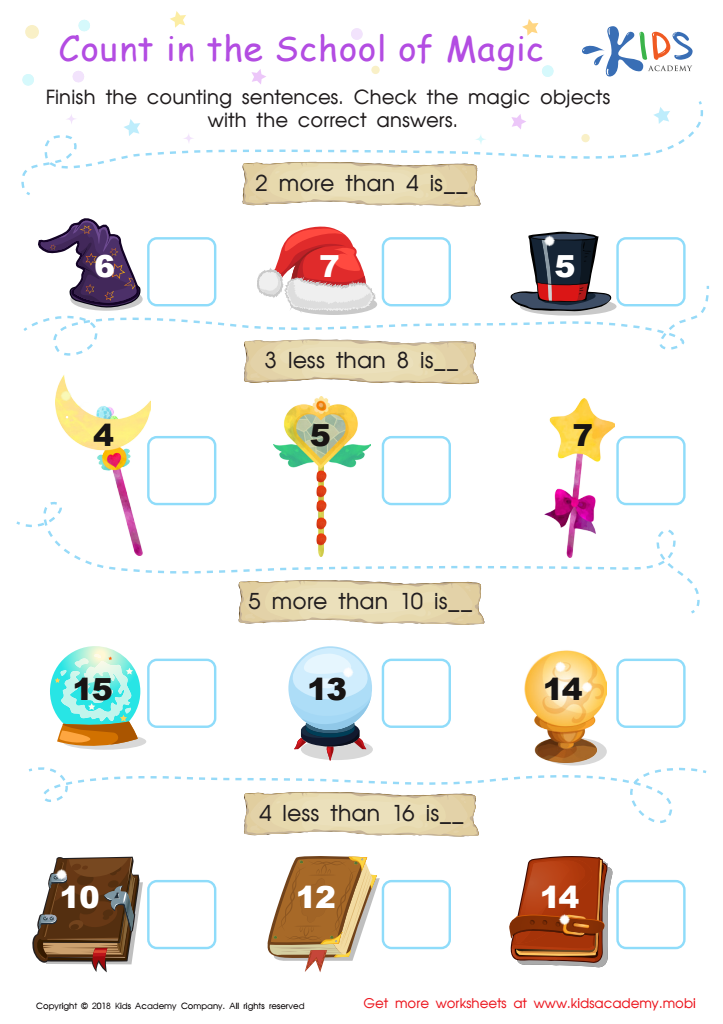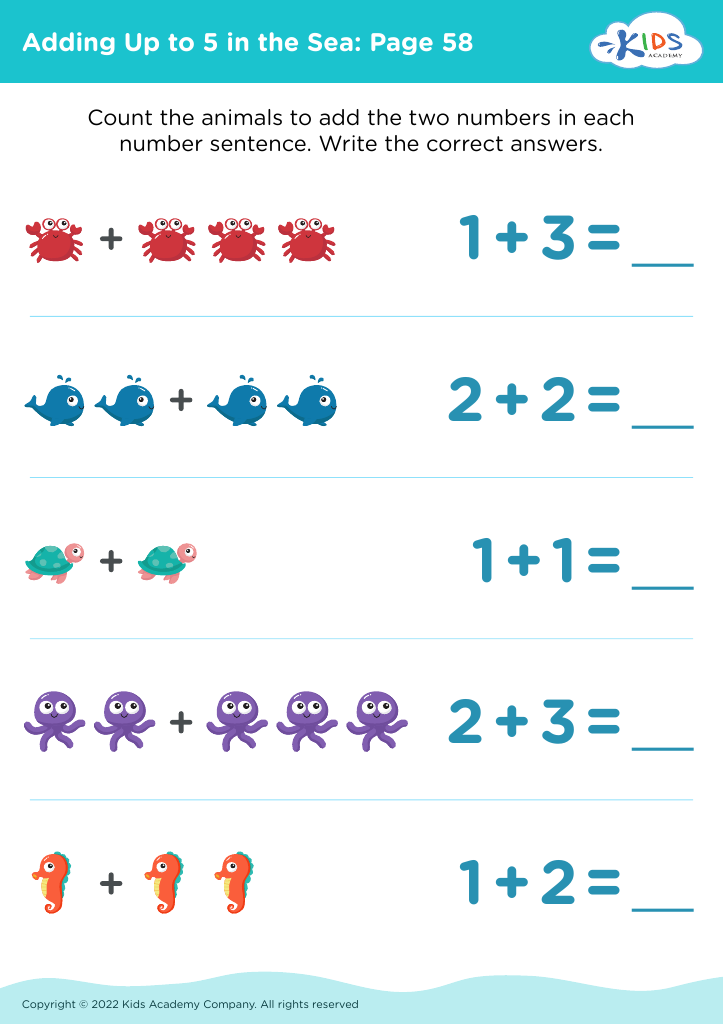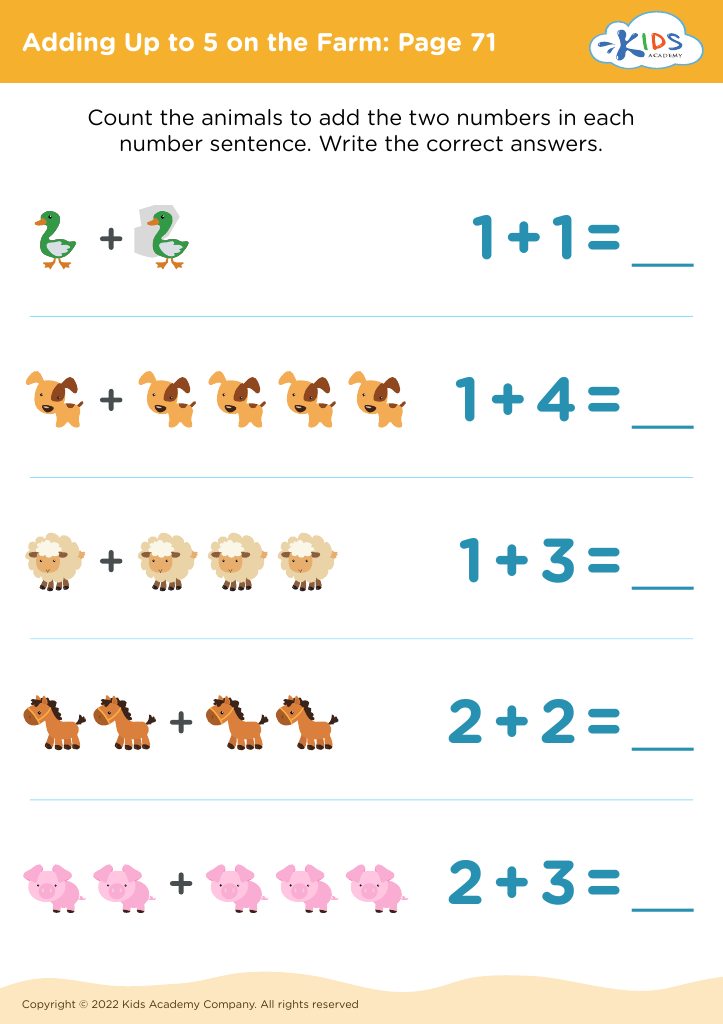Observational skills Addition & Subtraction Worksheets for Ages 4-8
5 filtered results
-
From - To
Enhance your child's learning journey with our engaging Observational Skills Addition & Subtraction Worksheets, designed for ages 4-8. These worksheets not only teach fundamental math concepts like addition and subtraction but also promote essential observational skills. By encouraging children to analyze patterns, count objects, and compare quantities, our activities foster critical thinking and enhance cognitive development. Colorful illustrations and relatable scenarios make learning fun and enjoyable, keeping young minds captivated. Perfect for classroom settings or home schooling, these resources allow children to practice at their own pace. Unlock the power of math and observation with our carefully crafted worksheets today!


Count in the School of Magic Worksheet
Parents and teachers should prioritize the development of observational skills related to addition and subtraction for children aged 4-8 because these skills lay the foundation for critical mathematical understanding. Observational skills enable children to notice relationships and patterns, helping them to understand numbers beyond rote memorization. For instance, observing objects in their environment allows children to grasp the concepts of quantity, comparison, and change, critical in both addition and subtraction.
By honing these skills, children become more engaged learners, capable of making connections between concepts. Observational activities, such as counting apples in a basket or identifying groups of objects to add or take away, promote hands-on learning and enhance mathematical reasoning. Furthermore, strong observational skills foster problem-solving abilities, equipping children to tackle more complex mathematical challenges early on.
Moreover, these skills support greater self-confidence and independence in learning. When children can visually assess situations and arrive at conclusions, they are more willing to explore and ask questions, enhancing their cognitive abilities. Parents and teachers who invest in these foundational skills contribute significantly to children's holistic development, ensuring they are not just passive recipients of knowledge but active participants in their learning journey.




 Assign to My Students
Assign to My Students






















